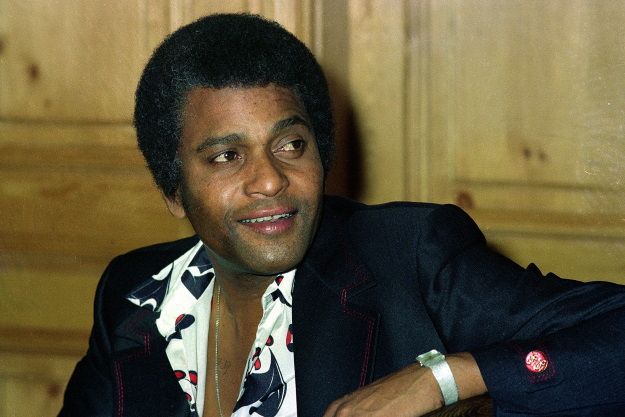I've been meaning to make this post for a while but have gotten severely off-track. Mark Rubin pionted out an article at the website of The Guardian newspaper in the UK called "The hidden faces of country". It discusses the paucity of black people in country music.
The piece begins with a look at Dwight Quick, a black country singer. He embraces the country aethetic - country music is also his music. Unlike music that is stereotypically "black" such as rap and funk, country speaks to his experiences growing up in a small North Carolina town. But, as his songwriting partner, Frankie Staton, observes, "Every type of music is integrated but country. They call it America's music, but it don't look like America."
According to some of the people interviewed, the lack of black country musicians is due to the executives of music labels. Here's what the author found when trying to get the labels's side of the story:
But few record executives are willing to go on record on the subject of country and race. Tammy Genovese, head of the Country Music Association (CMA), tells me: 'The black community's lifestyle is different from what we communicate with country music.' Perhaps the problem is that the industry has failed to reach out to black fans, I suggest. 'We try to market to all types of people,' she says. 'But every culture has its own kind of music, and that is something we can't change. Black people have their own types of music that they like to listen to, be that jazz, hip hop or whatever.'
While I'm left to wonder what they try to "communicate with country" and what is the "black community's lifestyle", Ms. Genovese's quote doesn't address the issue of a lack of black country artists. There's the implication here that black performers appeal to primarily black audiences and, since there's virtually no black audience, there's virtually no black performers. She doesn't explicitly say so, but it leads one to think that she feels white audiences just won't go for black performers.
As a tangent, I want to point out this quote from Charley Pride, the most famous black country musician of all-time:
American music consists of three basic ingredients: country, gospel and the blues. All are born from one another. If you want to ask about colours and cultures, we could go on and on. But that's the answer.'
I guess I won't go off on how irritating I find it when people say that "American music" is solely a product of music with roots in the South. Instead, I'll ask readers to check out the article.
And why did this appear in an English newspaper instead of an American? Anyone know of any articles about this topic in American periodicals?
The piece begins with a look at Dwight Quick, a black country singer. He embraces the country aethetic - country music is also his music. Unlike music that is stereotypically "black" such as rap and funk, country speaks to his experiences growing up in a small North Carolina town. But, as his songwriting partner, Frankie Staton, observes, "Every type of music is integrated but country. They call it America's music, but it don't look like America."
According to some of the people interviewed, the lack of black country musicians is due to the executives of music labels. Here's what the author found when trying to get the labels's side of the story:
But few record executives are willing to go on record on the subject of country and race. Tammy Genovese, head of the Country Music Association (CMA), tells me: 'The black community's lifestyle is different from what we communicate with country music.' Perhaps the problem is that the industry has failed to reach out to black fans, I suggest. 'We try to market to all types of people,' she says. 'But every culture has its own kind of music, and that is something we can't change. Black people have their own types of music that they like to listen to, be that jazz, hip hop or whatever.'
While I'm left to wonder what they try to "communicate with country" and what is the "black community's lifestyle", Ms. Genovese's quote doesn't address the issue of a lack of black country artists. There's the implication here that black performers appeal to primarily black audiences and, since there's virtually no black audience, there's virtually no black performers. She doesn't explicitly say so, but it leads one to think that she feels white audiences just won't go for black performers.
As a tangent, I want to point out this quote from Charley Pride, the most famous black country musician of all-time:
American music consists of three basic ingredients: country, gospel and the blues. All are born from one another. If you want to ask about colours and cultures, we could go on and on. But that's the answer.'
I guess I won't go off on how irritating I find it when people say that "American music" is solely a product of music with roots in the South. Instead, I'll ask readers to check out the article.
And why did this appear in an English newspaper instead of an American? Anyone know of any articles about this topic in American periodicals?

No comments:
Post a Comment